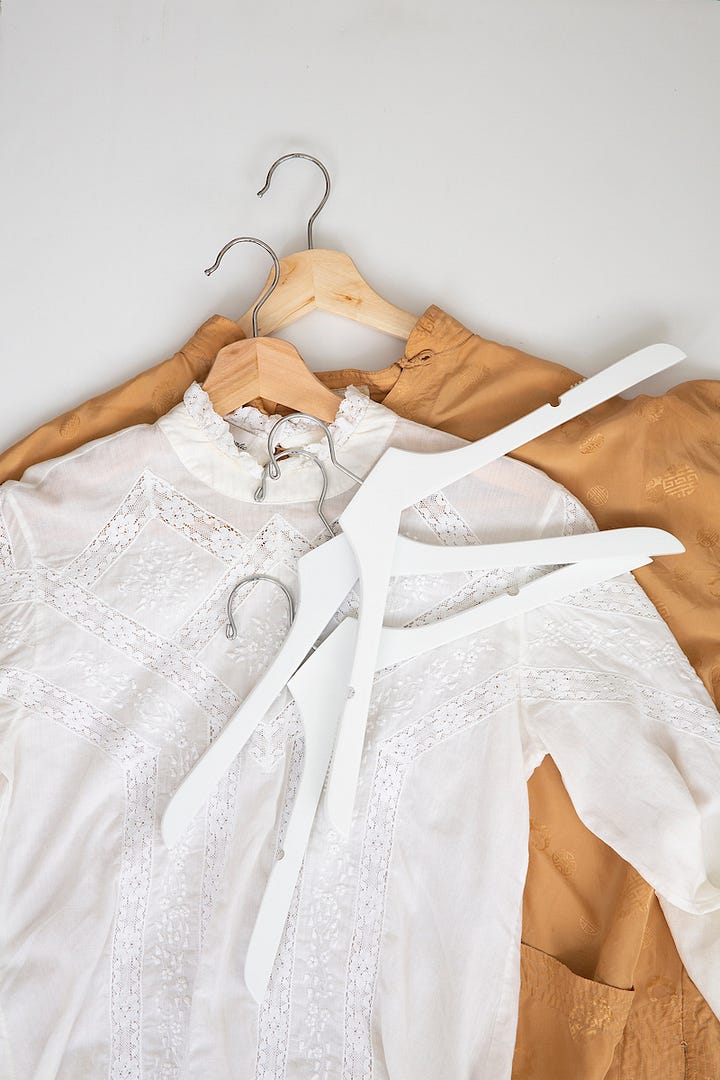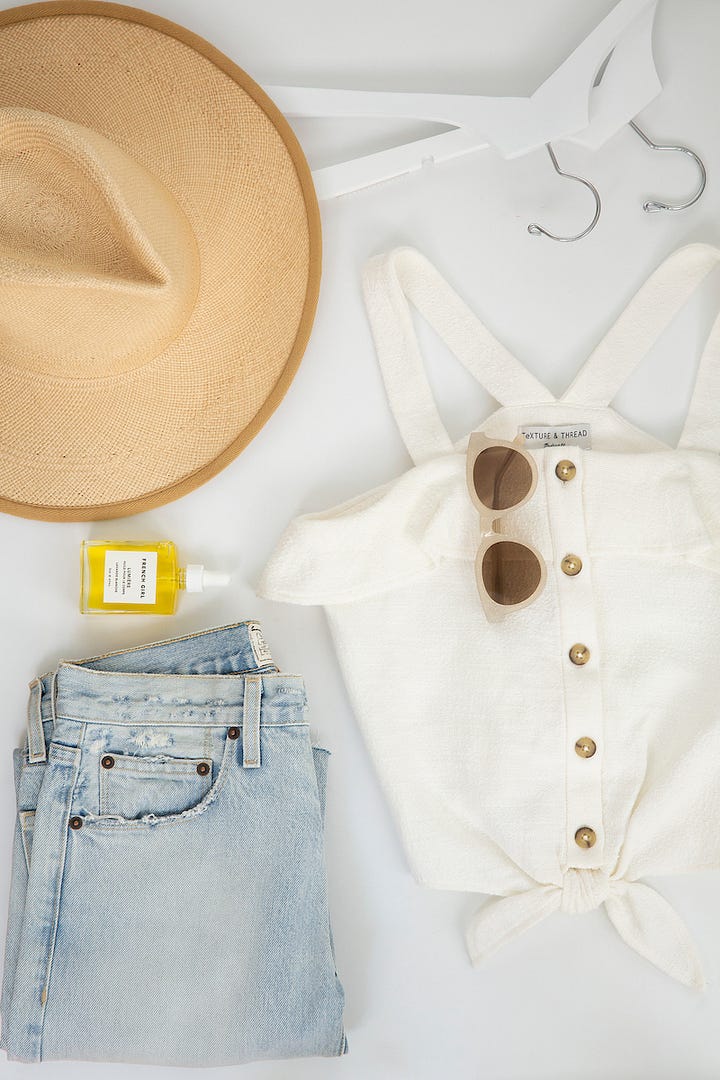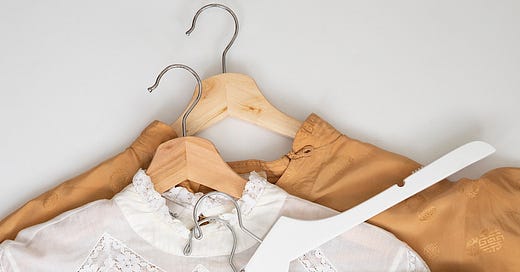This is the second installment in a series of posts centered around the #NoNewThings challenge, founded by sustainability expert and author, Ashlee Piper.
Over the course of my fifteen year career as a professional organizer, I’ve found that it’s very, very common to buy new things in an attempt to fill our deeper unmet needs.
We shop when we’re sad. We shop when we’re bored or restless or craving distraction. We shop in an attempt to shift our identity or feel more successful, attractive, or confident. We shop because we don’t want to examine the harder truths of our lives and dopamine feels good. The false promise of feeling different, better, and happier keeps us browsing and clicking and swiping. Often (almost always?) when we buy new things, it’s not because we actually *need* that thing. It’s because we want to *feel* better or different.


The problem is that retail therapy doesn’t actually work. Extensive research shows that the accumulation of material possessions falls short in providing genuine or lasting happiness. True fulfillment comes from deep connections with others, meaningful work, and identifying passion and purpose. By prioritizing experiences over material acquisition, we move closer towards sustained and authentic happiness. Sounds good, right?
This week it’s time to get down to business by digging into our deepest, truest desires and clarifying what we really, truly want. Hint: it’s probably not another face serum. Grab your favorite pen and jot down answers to the following questions:
Prompts:
What I am missing, craving or longing for?
Where do I feel unfulfilled or restless?
What do I really want?
Just increasing your awareness of where you are stuck or struggling, or what you are truly longing for, can help halt reckless or unnecessary spending and redirect your efforts in a more constructive direction.
A New Practice
Before you buy something new, ask yourself: what’s the real need?
It’s possible that you really do just want a new sweater or pair of jeans, but maybe, if you look deeper into the desire, you’ll find yourself facing grief, restlessness, sadness, or something else. Removing the option to buy the thing can help you identify and confront what’s actually going on beneath the surface. Shopping is a powerful numbing agent, and taking a break from the habit of consuming may initially be uncomfortable, but will pay big dividends in the end. Practice of using shopping alternatives that will provide you with greater healing and comfort (a walk with a friend, a call with a therapist, a good cry) instead of a temporary distraction, or what my mentor calls “false pleasure.”
Give it a try and let me know how it goes. I’ll be back next week to share my best strategies for curbing impulse buying. Until then!
In a post that felt oddly vulnerable, I shared (with permission) what my teenage daughter’s closet actually looks like. See it here.
I was thrilled to be a guest on the Women in the Middle podcast. I’m speaking with host Susie Rosenstein about how to organize your home, life, and mindset in midlife. Listen here.







Retail therapy provided a necessary service for me. Two years ago when my doctor told me that I had 2.5 - 5 years to live, I hung up the phone and thought, as my body decays I'll be damned if it appears so. Immediately I went online and bought a dress. I shopped for clothes every day for three months. And then I shopped for airline tickets and excursions and toured Europe for five weeks. By the time I returned I was ready to face whatever. I enrolled in a clinical trial and did what I was told. The need for shopping lost momentum and living each day as fully and present as possible gained. A year later the clinical trial proved successful. The FDA is set to make the announcement and prepare the drug for release, at which time I can cross the word "terminal" out of my identity. I took the one month shopping moratorium. It felt fabulous to delete COS, Everlane, and Banana Republic from my email. (I kept Vogue, of course, because...Vogue.) Am I sorry about the money so freely spent, the purchases made, the wardrobe that can make at least 10 capsules? Nope. At the time it was necessary to get me from shock to grieving, There are stages. Sometimes shopping is one of them.